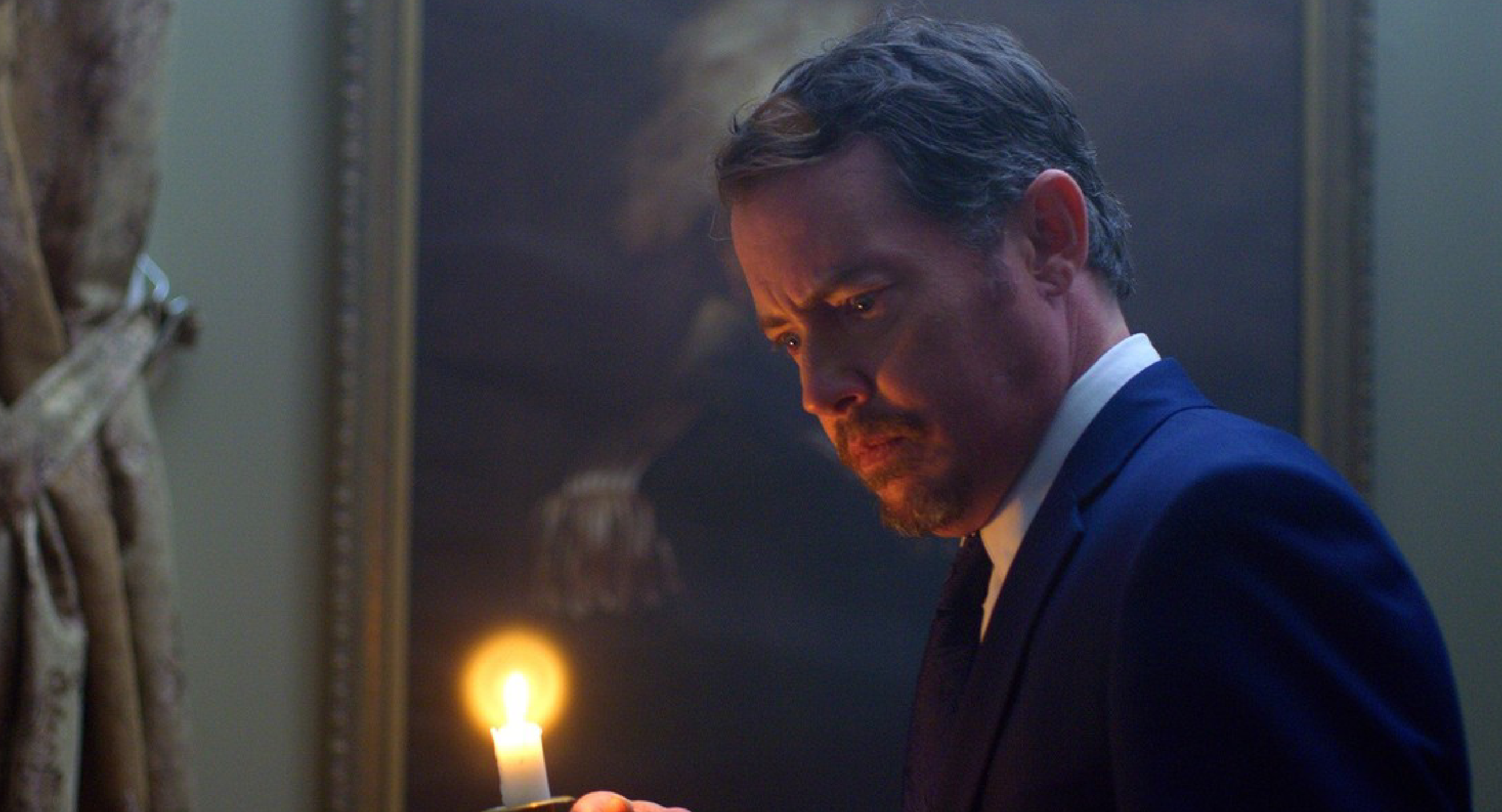Campton Manor – Film Review
Published August 11, 2024

Campton Manor is a film that promised to deliver a chilling ghost story but instead ends up being a tedious and uninspired attempt at horror. Directed by Cat Hostick and penned by Stephen Wallis, the movie presents a narrative filled with potential but ultimately stumbles in nearly every aspect, making it a frustrating experience for horror enthusiasts.
The premise of Campton Manor revolves around Teddy (Shawn Roberts), an author investigating a decades-old mystery that soon entangles him in a ghost story of his own. On paper, this sounds like a captivating idea, blending the classic haunted house motif with a meta-narrative twist. Unfortunately, the execution is where the film falters.
The pacing is one of the most glaring issues. The story drags along, burdened by unnecessary exposition and meandering scenes that contribute little to the overall plot. What could have been a tight, suspenseful narrative becomes a slog, with scenes that feel repetitive and devoid of tension. The screenplay by Stephen Wallis is littered with clichés and predictable turns, making the story feel stale rather than fresh or inventive.
The dialogue is equally uninspired, often feeling wooden and forced. Characters speak in stilted lines that lack any real depth or emotional resonance. Rather than creating a sense of dread or mystery, the conversations between characters frequently break the immersion, reminding the audience that they are watching a movie rather than being drawn into a world of horror.
The cast includes some notable names, such as Shawn Roberts, Jason London, and Kenneth Walsh, but their performances are hampered by the weak script. Shawn Roberts, as the protagonist Teddy, delivers a performance that is serviceable but lacks the charisma or intensity needed to carry the film.
Jason London as Jack and Kenneth Walsh as Lawrence do their best with what they are given, but their characters are underdeveloped, serving more as plot devices than fully realized individuals. Julian Richings, who has a natural knack for playing eerie characters, is sadly underutilized as Edward, a character that could have been much more menacing but instead comes off as a mere caricature.
Marcia Bennett as Ethel delivers perhaps the most memorable performance, but even her role is limited, and the script does not give her enough to work with. The characters as a whole feel like stock figures in a horror movie, lacking the complexity or nuance that could have elevated the film.
Cat Hostick’s direction attempts to create a moody, atmospheric piece, but the result is a film that feels more dull than dreadful. The cinematography is competent but uninspired, with the film relying heavily on dark, shadowy rooms and creaking floorboards to create tension. However, these elements are used so predictably that they lose their effectiveness quickly.
The manor itself, which should have been a character in its own right, feels underwhelming. The set design lacks the intricate detail that could have made the location truly terrifying. Instead, it comes off as generic and forgettable, another missed opportunity in a film full of them.
The sound design and score are perhaps the least offensive aspects of the film, but they do little to elevate the material. The music is standard horror fare, with eerie strings and ominous tones that are more likely to induce boredom than fear. The sound effects, while appropriate, are often overused, making them less impactful over time.
With so many superior horror films available, it’s hard to recommend Campton Manor to anyone but the most die-hard fans of the genre who are willing to endure its many flaws. Unfortunately, the film does little to stand out in a crowded field, and its brief moments of potential are overshadowed by its overwhelming mediocrity.
